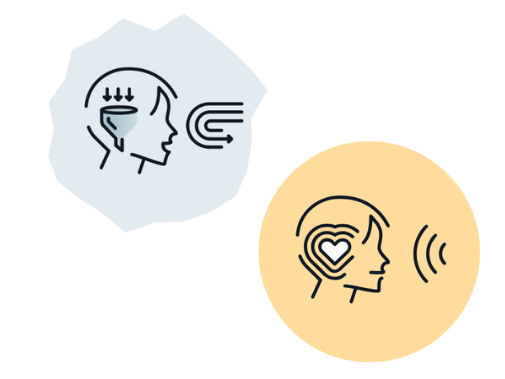Helping Students Listen
Students are taught to read, write, and speak. But what about listening? What training have they received that enables them to listen and deeply understand others? Habit 5: Seek First to Understand, Then To Be Understood is about helping students listen and communicate more effectively.
Student’s (and everyone’s) default tendency is to make sure they are heard. In doing so, they may ignore the other person completely, pretend that they’re listening, or focus on the words and miss the meaning. At school, this often means they might not fully understand an assignment before they try to complete it. At home, it might mean they miss out on a chance at deeper connection with the people who matter most.
Habit 5 is about learning to suspend the desire to respond automatically. It’s about practicing a deeper and more intentional kind of listening. And then, when it is a student’s time to be understood, it’s about expressing their point of view in a clear and articulate way that keeps their audience’s needs in mind.
Imagine the impact this type of behavior would have on a campus. Course guidelines would be better followed. Student needs would be better understood and met. Staff and students would become a collective team.
Autobiographical vs. Empathic Listening
We teach students that listening autobiographically is when we turn the other person’s story into our story. We filter everything they say through our own experiences, values, and perspective. Students who listen this way need to understand that this greatly limits their education as they’re never allowing a challenge or expansion to their views.
Contrarily, when we listen empathically, we create space for others to share their perspective and emotions. And in the process we build a more sincere sense of connection and understanding. This not only facilitates deeper learning, but can transform a students social and professional life.


If I were to summarize in one sentence the single most important principle I have learned in the field of interpersonal relations, it would be this: Seek first to understand, then to be understood.
Free Tool
Help students find direction and purpose with this free online tool.
Free Guide
See how institutions are improving retention and student success by teaching students the 7 Habits.
Focus and act on what you can control and influence instead of what you can’t.
Define clear measures of success and a plan to achieve them.
Prioritize and achieve your most important goals instead of constantly reacting to urgencies.
Collaborate more effectively by building high-trust relationships.
Influence others by developing a deep understanding of their needs and perspectives.
Develop innovative solutions that leverage different perspectives and satisfy all key stakeholders.
Increase motivation, energy, and work/life balance by making time for renewing activities.
See how the 7 Habits can easily integrate into your programs and change the lives of your students.









